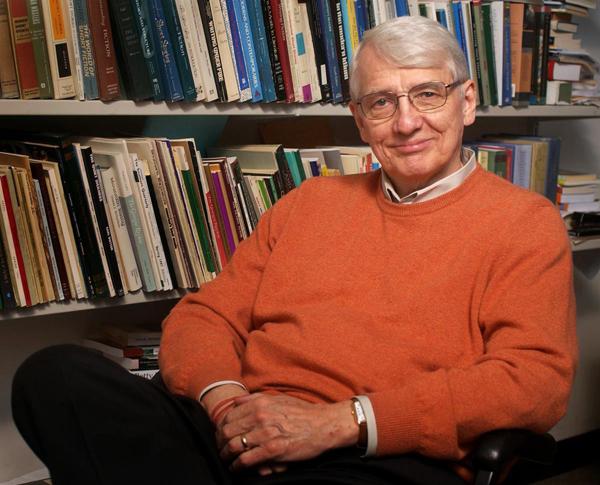 Author Gurney Norman, the ASU Rivers-Coffey Distinguished Visiting Professor in Creative Writing, is this week’s speaker for the Visiting Writers Series Lecture.
Author Gurney Norman, the ASU Rivers-Coffey Distinguished Visiting Professor in Creative Writing, is this week’s speaker for the Visiting Writers Series Lecture.
Norman will give an author talk, titled “Was Steve Jobs a Hillbilly?” from 3:30- 4:45 p.m. in Plemmons Student Union’s Table Rock Room on Thursday. Norman’s lecture for the Visiting Writers Series will take place in the same at 7:30 p.m. where he will read from selected works.
The Appalachian got a chance to talk to Norman before the writers series.
The Appalachian: When did you discover your passion for creative writing?
Gurney Norman: I had a wonderful older brother, an outgoing popular boy who died in a car wreck at age eighteen. In a college creative writing class I wrote a short story about that experience. I felt that I had engaged a deep personal truth in that story, had found expression for a chaos of feelings. I knew then that I would make writing central to my life.
TA: Why do you think the Appalachian Region is inspiring to write about?
GN: An hour’s drive on the Blue Ridge Parkway answers that question. This is one of the most beautiful areas in the world. It is such a dramatic place and the human story is so fascinating, so American. There is something about life here that shapes personal identity in ways that stay with you and leave you feeling attached in enduring ways. For me, the regional perspective is a starting point for considering the whole world. It is like a lens that helps me see, focus. I can’t separate the landscape from my family history. My grandfather grew up in Avery County. Exactly a hundred years ago he moved to Kentucky to spend his entire working life in the coal fields. Late in life he moved back to Avery County. So for me, the whole two hundred mile mountain range from here to Kentucky is one place.
TA: You have written fiction, non-fiction and also worked in television and film. Is there one area you prefer working in more than another?
GN: I have done a fair amount of film and television work, and now digital media is becoming its own creative field. But writing comes first. Language. And let’s not leave out the spoken word, the original way of telling stories.
TA: Could you tell me a little more about your craft talk, “Was Steve Jobs a Hillbilly?”
GN: I’m still trying to figure that one out myself. The answer is probably no. But through some tortured logic I think I can make a tenuous connection. But don’t quote me.
TA: As a professor, what advice would you give to college students interested in pursuing a career as a professional writer?
GN: First, as an old guy, I still think the key to writing is reading. War And Peace remains essential. Complex narratives train the human mind in fundamental ways, like a muscle. Having said that, let’s enjoy the fact that for young people, the digital environment is now a native habitat. Young writers have access to creative power unthinkable for my generation. Good for them!
TA: Are there any authors you draw your inspiration from?
GN: Oh yes. Hundreds of them. And not all poets and fiction writers, either. Right now, Regeneration Through Violence by the scholar Richard Slotkin is blowing my mind.
Story: KALEY CAMPBELL, A&E Reporter

